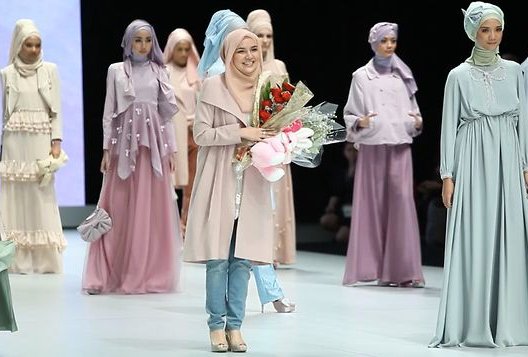New York: The 2015-16
State of the Global Islamic Economy Report released on Wednesday revealed that Muslim
consumers spend an estimated $230 billion on clothing, a number that is
projected to grow to $327 billion by 2019 — larger than the current combined
clothing markets of the UK ($107bn), Germany ($99bn) and India ($96bn).

Rafi-Uddin Shikoh, the
person behind the study, said: “Overall clothing purchase by Muslim consumers
does not directly translate into Islamic fashion”. “But there are a number of
drivers that suggest the modest fashion industry will be growing towards those
numbers,” he further added.
First of all, there is
the “importance of religion” in people's life. Compared with Europe, where only
one in three respondents deem religion important, or the US where that
percentage hovers at around 50 per cent, in majority Muslim countries 88 per cent
of the population define religion as important.
Secondly, there are the
demographics. The average age in Muslim majority countries is about 30 in
Europe and the US it is about 44. This is very important as the purchasing
power of young consumers tends to grow over the years.
The third important
driver is an economic one. The Gross Domestic Product (GDP) of countries with a
majority Muslim population is projected to grow at an average of 5.4 per cent a
year compared with the 3.4 per cent of Europe and the US over the next few
years.
Last but not least, 29
per cent of the global population is expected to be Muslim by 2030.
Local entrepreneurs and
designers are not the only ones to have jumped on the modest fashion bandwagon.
Large international brands such as DKNY, H&M and Uniqlo have all created
collections to cater to the Muslim market. Recently, Dolce & Gabbana
unveiled its Abaya and Hijab collection, causing a stir in the luxury fashion
world.



No comments:
Post a Comment